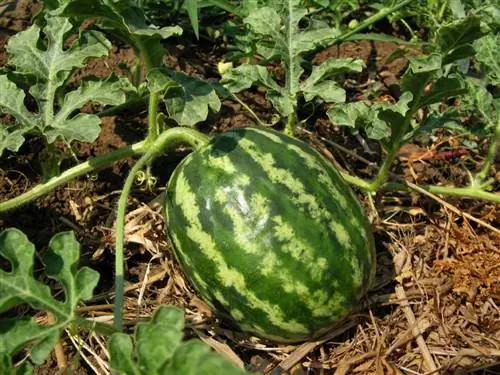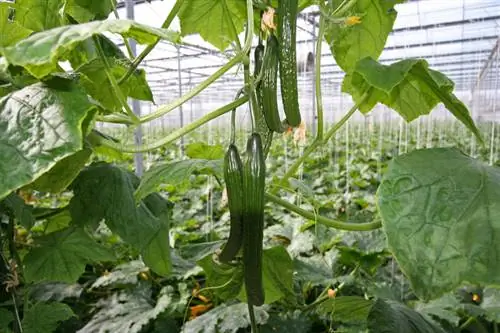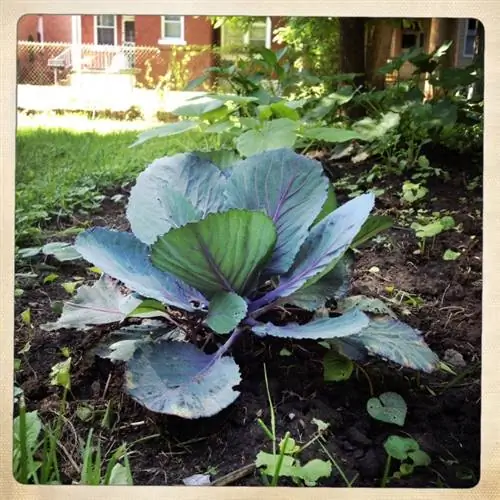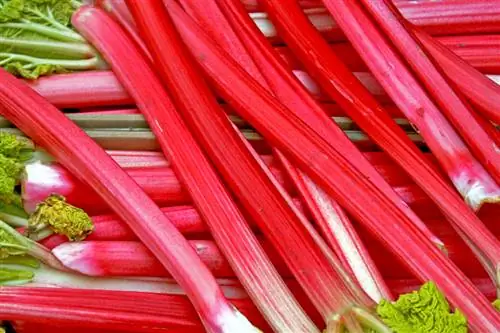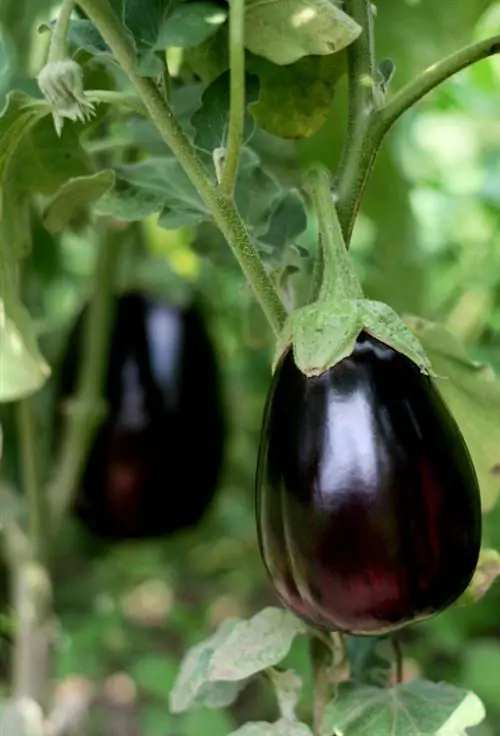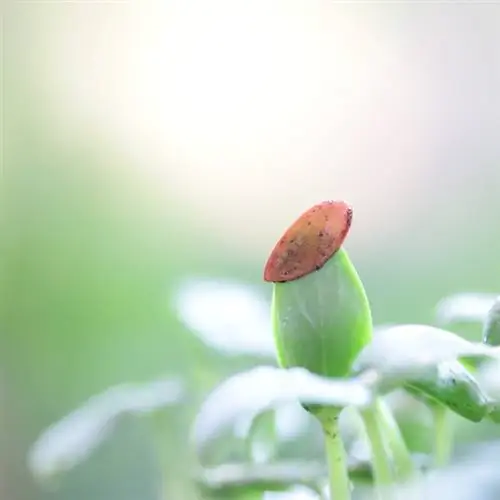- Author admin leonars@hobbygardeners.com.
- Public 2023-12-16 16:46.
- Last modified 2025-01-23 11:20.
Watermelons originally come from West Africa in their wild form and are now planted in warm regions around the world. In the home garden or greenhouse they must be well cared for for a successful harvest.
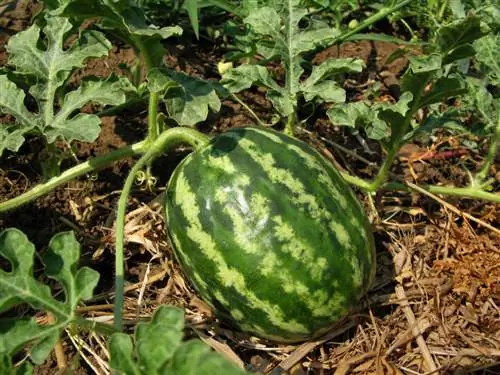
How to properly care for a watermelon?
The care of watermelons includes regular watering without waterlogging, careful repotting, if necessary shoot topping for larger fruits, protection against diseases through grafting, fertilization with seasoned manure or compost and proper storage of fruits and seeds.
How often does a watermelon need to be watered?
During the germination phase and also with the young plants, the substrate should be kept evenly moist, but the plants cannot tolerate waterlogging. In general, watermelons in pots need more water than specimens that have been planted in the garden soil. During the fruiting phase, watermelons should be watered daily, early in the morning or in the evening, otherwise the fruits may malform.
How to repot the watermelon?
Since the roots of young watermelons are very sensitive, pricking should be avoided in the first few weeks of life if possible. A practical approach is to sow two to three melon seeds in a small pot and then only leave the strongest young plant in it. Larger watermelons should then be placed as carefully as possible with the root ball in a prepared planting hole so that as little soil as possible falls away from the fine roots.
Does a watermelon have to be cut?
Because watermelons are annual plants, they are only cut or redirected if they outgrow their intended location. However, it promotes the formation of large fruits if the shoots are cut above the fruit base.
How to protect watermelon from diseases?
Specific pests for plants are not very common in our latitudes. However, it protects against fungal diseases and other pathogens if you graft your watermelons onto rootstock such as fig leaf squash.
Does a watermelon also need to be fertilized?
During the summer, watermelons and pumpkins often produce an astonishing amount of growth per day. To do this, they also need the appropriate nutrients from the soil. However, you should not use fresh stable manure for fertilization, but only seasoned manure or compost.
How to store the fruits and seeds of watermelon?
As annual plants, watermelons die in the fall and cannot be overwintered. The ripe fruits can be stored in the cellar or refrigerator for up to three or four weeks. The seeds must be cleaned and dried before storage to prevent them from becoming moldy.
Tips & Tricks
You can often find refined watermelons in garden shops. This saves beginners the frustration of unsuccessful refinement attempts.

